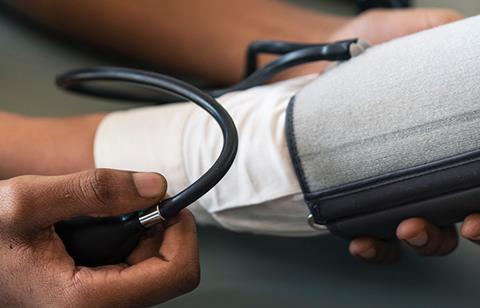
This week marks Know Your Numbers Week, which is Blood Pressure UK’s award-winning flagship campaign that raises awareness of the risks of high blood pressure. Maintaining a healthy lifestyle can be hard and we all fall off the wagon at some point, however, it is important to be aware of all aspects of your health and monitor any conditions you have.
High blood pressure is often referred to as the silent killer and as you can tell from the name, it can result in some very serious health consequences such as a stroke or heart attack.
Risks of high blood pressure to your body include:
- Your heart: high blood pressure can cause you to have a heart attack, go into heart failure or develop aortic aneurysms.
- Your brain: high blood pressure can increase the risk of having a stroke and can cause vascular dementia.
- Your kidneys: high blood pressure can lead to kidney disease as over time it puts a strain on the small blood vessels in the kidneys and stops them working properly.
- Your legs: high blood pressure can cause peripheral arterial disease which is a build-up of fatty deposits in the arteries that restricts the blood supply to leg muscles.
- Your eyes: high blood pressure can create eye blood vessel damage, cause fluid build-up under the retina and nerve damage.
- Your bones: high blood pressure can cause a loss of bone density which can result in broken bones.
How to reduce your blood pressure
Maintain a healthy dietMost importantly reduce the amount of salt included in your food as it raises you blood pressure! Eating a healthy balanced diet full of fruit and vegetables, foods rich in whole grains and low-fat dairy products can lower blood pressure levels. Limiting your alcohol intake is better for blood pressure levels as drinking it in excess raises it by several points and can also reduce the effectiveness of blood pressure medications.
Lose weight if neededA weight increase can also increase blood pressure as being overweight forces your heart to work harder to pump blood around your heart. The British Heart Foundation states “for some people, losing weight is all they need to do to get their blood pressure down to a normal level.”
Regular exercisePhysical inactivity is linked to high blood pressure, therefore exercising can reduce your blood pressure. However, if you don’t exercise on a regular basis then blood pressure will rise again. Examples of aerobic exercises to try to lower blood pressure include walking, running, cycling, swimming or dancing.
Quit smokingSmoking increases your blood pressure for many minutes after you finish your cigarette. Quitting helps blood pressure return to normal, reduces your risk of heart or lung disease, improves your overall health and may help you to live longer.
Employers can also help by providing their employees with Lifestyle Screening DaysThese high impact, interactive screening programmes are designed to engage your workplace in their personal health and wellness. It provides employees with an overview on their health and gives a clear picture of where they are now and what lifestyle changes need to be made to become healthier. Lifestyle Screening Days support your employee’s health by providing a confidential 1-2-1 appointment, instant results, personal report presented in an easy to understand traffic light format, GP referral letter if required and advice for making positive lifestyle changes. If you are interested in offering Lifestyle Screening Days, please contact Your Wellness Hub on sales@incorpore.co.uk or visit the website www.yourwellnesshub.co.uk.











